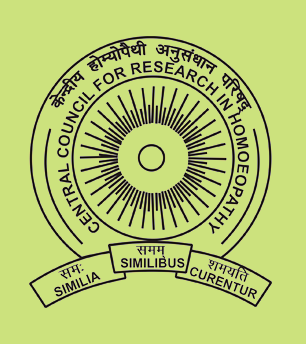Indian Journal of Research in Homoeopathy
Keywords
benign prostatic hyperplasia; homoeopathy; Lycopodium; observational study; Pulsatilla; Sulphur; Thuja
Article Type
Original Article
Abstract
Objectives:The primary objective of this study was to determine the therapeutic usefulness of a group of predefined trial medicines in benign prostatic hyperplasia. The secondary objective was to check the progression of disease by evaluating changes in prostate volume (PV), post-void residual urine (PVRU) and peak urine flow rates (Qmax and Qavg in ml/sec). Methods:In a multi-centric observational study, 231 patients suffering from benign prostatic hyperplasia (BPH) having prostate volume > 20 mL and prostate specific antigen (PSA) ≤ 4 ng/mL were enrolled at 5 Institutes/Units under Central Council for Research in Homeopathy (CCRH). Symptoms were analyzed using the American Urological Association Symptom Index (AUASI). Parameters like PSA, Prostate volume, Post void residual urine, Qmax, Qavg were also analyzed. Twenty pre-defined homoeopathic medicines were short-listed for prescription after repertorizing the pathological symptoms of BPH. The appearance of any change (relief/worsening)/status quo was immediately followed by placebo/ change in potency/change in remedy. The follow-up period was for one year. The analysis was done as per intention to treat principle. Statistical analysis was done using SPSS version 16. Results:The data of 187 patients out of 231 enrolled was analyzed. The non-parametric Friedman test was applied to test for significant difference in AUASI score reported over 12 months (baseline, 3 months, 6 months and 12 months). There was a statistically significant reduction in AUASI score (median change of 13 points, p= 0.0001) on completion of one year of treatment. A total of 10 out of 20 pre-defined medicines were prescribed to 187 patients. The medicines found to be most useful in this study are: Thuja (27 out of 53; 51%), Sulphur (26 out 46; 56.5%), Pulsatilla (34 out of 46; 74%), Lycopodium.(7 out of 13; 54%).There was a mean reduction of 2.3 ml in prostate volume, which was significant satistically (p=0.005). Conclusion:Homoeopathic medicines significantly improved lower urinary tract symptoms in men with BPH. Placebo-controlled trials are needed to evaluate their efficacy and effectiveness.
Digital Object Identifier
10.53945/2320-7094.1694
Publisher
Wolters Kluwer India Pvt. Ltd.
How to cite this article
Oberai P, Roja V, Ramesh D, et al. Homoeopathic medicines in the management of benign prostatic hyperplasia: A multicentric prospective observational study. Indian J Res Homoeopathy 2012;6:16-25. doi: 10.53945/2320-7094.1694


